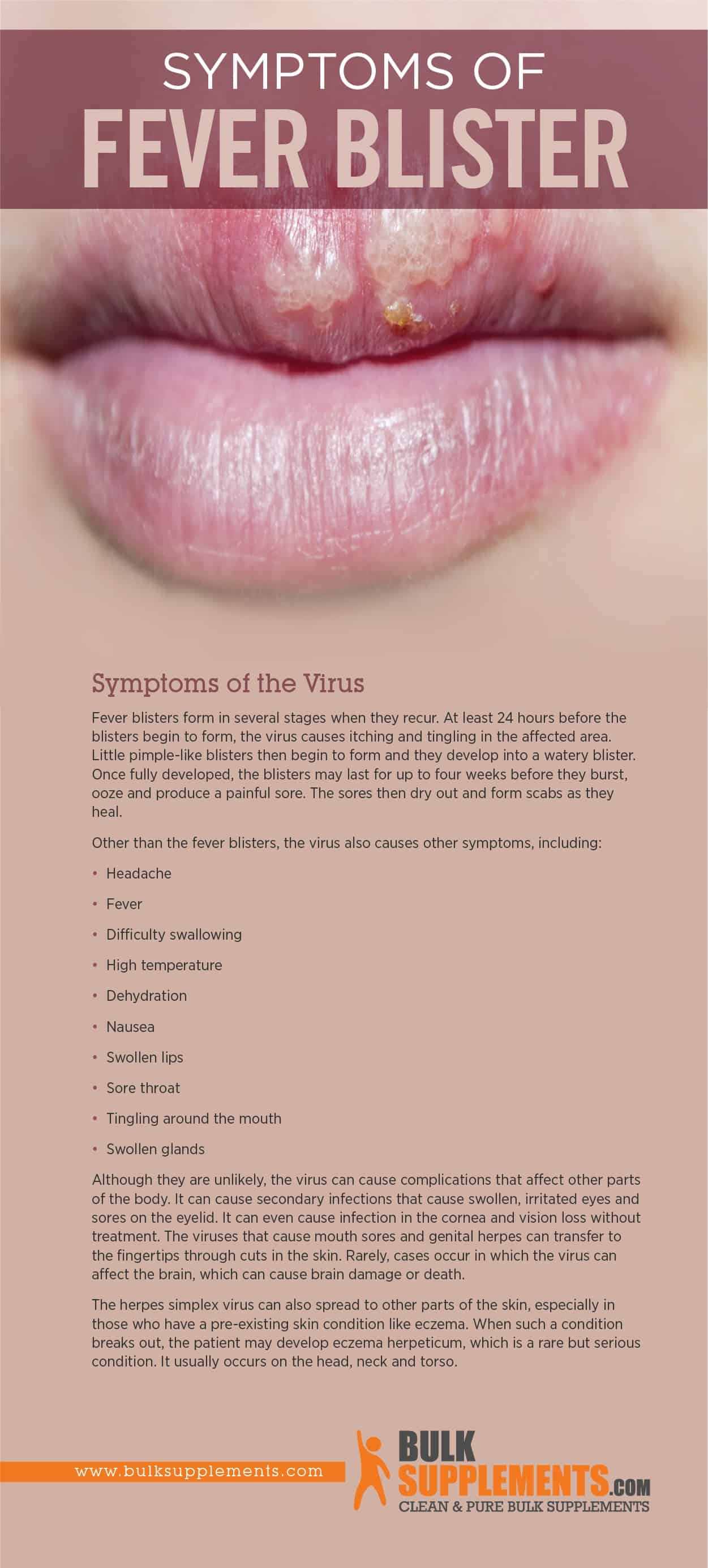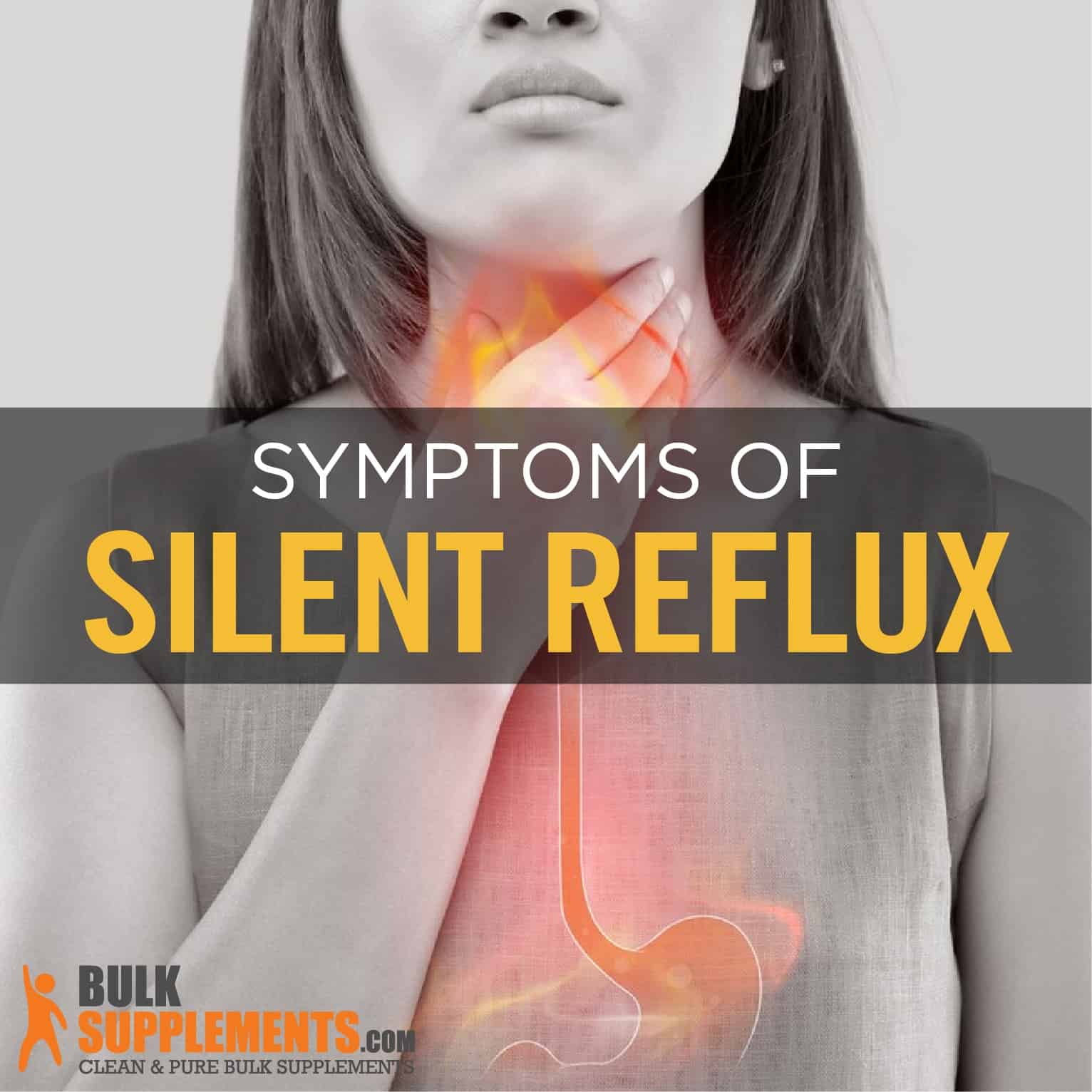Fever Blisters: Causes, Symptoms & Treatments

Fever Blisters
What are Fever Blisters?
Fever blisters, or cold sores, form from the herpes simplex virus type 1 (HSV-1). The virus passes from person to person by direct contact with infected skin or secretions, including saliva. Fever blisters are sores that usually appear as clusters of tiny blisters. They can form on the lips, chin, cheeks or nose. The virus can also form on the genitals and in the esophagus, called genital herpes and herpes esophagitis, respectively. They spread by kissing, sharing utensils and oral sex. The virus is still contagious even if a blister has not yet formed. There is no cure for the herpes virus.
What Causes Fever Blisters?
The herpes simplex virus type 1 (HSV-1) is a common infection and almost half of the total population of the United States between the ages of 14 and 19 carry the virus. Cold sores are highly transmissible. The virus is transferred through contact like sharing utensils or towels, kissing or oral sex.
The virus is contagious before the blisters form and after they heal. Fever blisters can recur several times during a lifetime and they may form in the same place every time. After the cold sore disappears, the virus still remains in the body and can reactivate again from certain triggers:
- Anxiety and stress
- Certain food
- Sun or wind exposure
- Hormonal changes
- Fatigue
- Weak immune system
- Cold or fever
- Other viral infections
Risk Factors for Fever Blisters
Over 90% of adults test positive for the herpes simplex virus even if they haven’t manifested any symptoms.
People with weak immune systems are at higher risk of developing the virus, as well as fever blisters. Medical conditions and medications that weaken the immune system and increase the risk of contracting the virus include:
- Eczema
- HIV
- Chemotherapy treatment
- Severe burns
- Organ transplants
Symptoms of the Virus
Fever blisters form in several stages when they recur. At least 24 hours before the blisters begin to form, the virus causes itching and tingling in the affected area. Little pimple-like blisters then begin to form and they develop into a watery blister. Once fully developed, the blisters may last for up to four weeks before they burst, ooze and produce a painful sore. The sores then dry out and form scabs as they heal.
Other than the fever blisters, the virus also causes other symptoms, including:
- Headache
- Fever
- Difficulty swallowing
- High temperature
- Dehydration
- Nausea
- Swollen lips
- Sore throat
- Tingling around the mouth
- Swollen glands
Although they are unlikely, the virus can cause complications that affect other parts of the body. It can cause secondary infections that cause swollen, irritated eyes and sores on the eyelid. It can even cause infection in the cornea and vision loss without treatment. The viruses that cause mouth sores and genital herpes can transfer to the fingertips through cuts in the skin. Rarely, cases occur in which the virus can affect the brain, which can cause brain damage or death.
The herpes simplex virus can also spread to other parts of the skin, especially in those who have a pre-existing skin condition like eczema. When such a condition breaks out, the patient may develop eczema herpeticum, which is a rare but serious condition. It usually occurs on the head, neck and torso.

Treatments for Fever Blisters
Without treatment, most cold sores will resolve themselves within one to two weeks. Treatments range from home remedies to over-the-counter antiviral ointments that reduce infection, prevent future outbreaks and alleviate pain and discomfort. Patients with weakened immune systems may have other complications that require more treatment if the infection spreads to other parts of the body.
Supplements for Fever Blisters
There are also several home remedies and supplements that can help relieve fever blisters and pain and fight infection.
Zinc Oxide Powder
Zinc helps heal wounds. Studies show that glycerin and zinc oxide cream shorten the period of fever blister outbreaks. The recommended dosage for a zinc oxide health supplement is 32 to 64 mg once a day.
SEE ALSO

Silent Reflux: Causes, Symptoms & Treatment
L-Lysine HCL Powder
L-Lysine HCL powder is a common supplement that treats cold sores and fever blisters. It helps prohibit the HSV virus from reproducing, shortening the duration of the outbreak. The suggested daily dosage of L-Lysine HCL powder is 680 mg once or twice a day.
Vitamin E Softgels
Vitamin E is an excellent supplement for treating fever blisters. It can be taken orally or applied directly to the infected area in the form of a cream to soothe discomfort and prevent scars. The recommended dose for Vitamin E softgels is one soft gel a day with a meal.
Peppermint Extract Powder
Peppermint extract has antiviral properties and is a good supplement for those with blisters in their mouth. It is especially effective during the early symptoms of fever blisters. Apply a considerable amount of diluted peppermint oil to the area where the tingling sensation occurs and when the blisters form. As an extract, it can relieve pain and fight fatigue. Take 700 mg once or twice daily.
Tea Tree Oil
Tea tree oil is packed with antifungal, antiviral, antibacterial and antiseptic properties and is an excellent supplement to treat fever blisters. It helps to keep the infected area clean and quickens the healing process. Dilute one or two drops with a carrier oil and apply directly to the skin.
The Bottom Line
Fever blisters or cold sores are a virus caused by the herpes simplex virus type 1 (HSV-1). It shows up as clusters of tiny blisters filled with fluid on the lips and is passed from person-to-person by direct contact with infected skin or secretions, including saliva. They can also form on the genitals and in the esophagus.
Stress, fatigue, hormonal imbalances brought on by menstruation, colds and fever, sore throat, other viral infections and extreme exposure to sunlight and unclean air can trigger fever blisters. Symptoms range from headaches and fever, to a tingling sensation around the mouth, small painless bumps on the lips and muscle pain. While there is no cure for the virus, cold sores can be treated with antiviral medications. Supplements are alternative treatment options, including zinc, Vitamin E, L-Lysine HCL powder, peppermint oil and tea tree oil.



